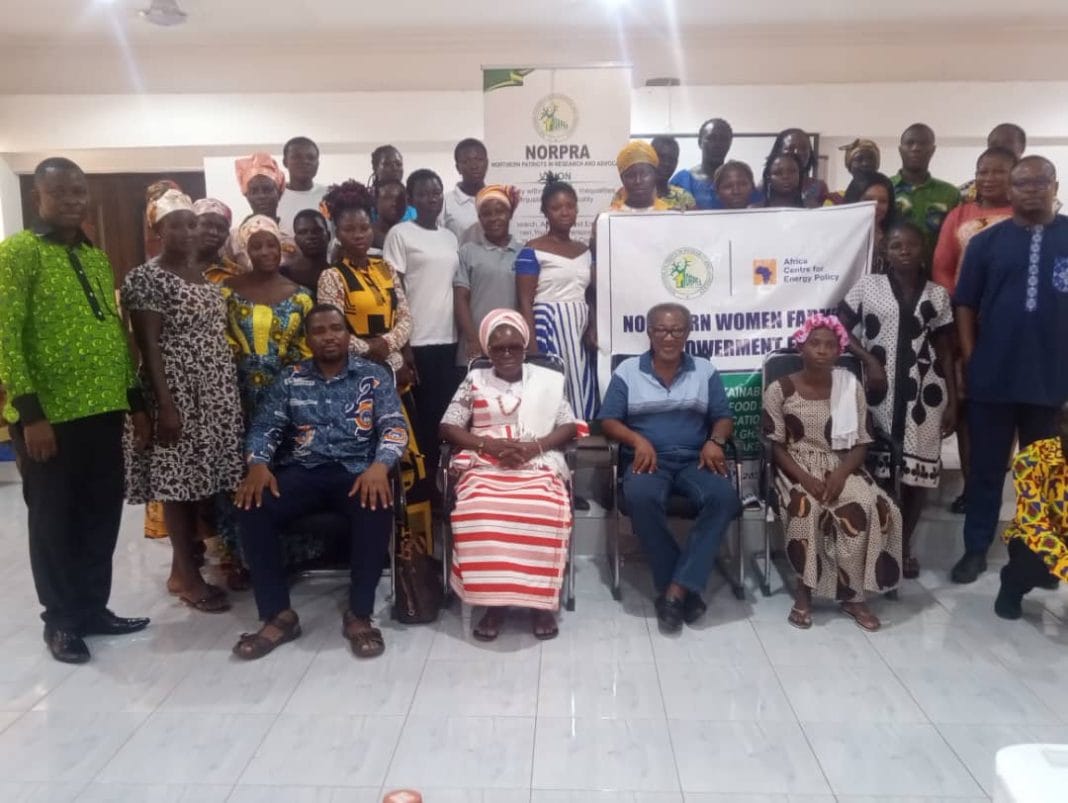For Ghana to achieve sustainable food security, agricultural policies must be tailored specifically to support women farmers, according to Professor David Millar, President of the Millar Institute for Transdisciplinary Studies.
Speaking at the Women Farmers Empowerment Forum held in Bolgatanga, Upper East Region, Prof. Millar lamented that successive governments have continually focused their policies on male farmers, ignoring the substantial contributions of women to agriculture.
He emphasized that women play a significant role in farming activities, especially in the production of cereals, vegetables, and livestock rearing across the five northern regions of Ghana.
“How can we, as a country, attain food security when, over the years, policies have been designed only for male farmers? Women farmers have been neglected for a long time, yet they are the ones who can help us attain food security,” he said.
Citing examples from the Upper East Region, Prof. Millar noted that women dominate the production of vegetables and cereals. However, policy support often targets crops like rice and maize, which are mostly cultivated by men.
“If the government can target the women already engaged in active production with just a little support, the impact they can bring to the region would be enormous,” he added.
He also called for an urgent review of agricultural policies to reflect the geographical and ecological differences among the northern regions.
“The land features of the Upper East Region are not the same as those of the Northern or Upper West Regions. These distinctions must be considered in designing appropriate strategies,” he advised.
The forum, organized by the Northern Patriots in Research and Advocacy (NORPRA) under the ACEP-supported project “Increasing Renewable Energy Investments for the Empowerment of Women in Sustainable Agriculture and Lithium Mining in West Africa (IREEWAM),” aimed to equip women with modern, sustainable agricultural practices, technologies, and renewable energy solutions for climate change mitigation and adaptation.
NORPRA’s Executive Director, Mr. Bismark Adongo Ayorogo, in his welcome address, highlighted the disproportionate impacts of climate change on women in Northern Ghana.
“But for the climate-induced droughts, floods, and extreme weather, this area with eight million hectares of agricultural land would not be a hotspot for food insecurity and poverty,” he observed.
He urged the government to expedite the implementation of various initiatives under the Agriculture for Economic Transformation Agenda (AETA), including the Feed Ghana Programme, the Vegetable Development Project, and modern irrigation projects such as Solar for Irrigation and Irrigation for Wealth Creation.
He also called for the establishment of functional Farmers’ Service Centres and agro-processing factories, including local beer-brewing industries, to add value to agricultural produce.
The women participants reiterated the call for the creation of a Women’s Development Bank to provide accessible soft loans, particularly to rural-based women farmers.
They argued that financial empowerment is essential to scaling up their agricultural ventures and enhancing food production.
Other speakers at the forum included Alhaji Zakaria Fuseini, Upper East Regional Director of Agriculture; Mr. Brian N. Atinga, representative of the Northern Development Authority; Dr. Samuel Akonga, Environment and Climate Change Consultant; and Ms. Georgina Sabari, Agriculture and Climate Change Consultant.
With the theme “Promoting Sustainable Agriculture for Improved Food Security and Poverty Eradication in Climate-Impacted Northern Ghana: The Role of Policymakers,” the forum served as a powerful platform to re-echo the urgency of placing women at the center of Ghana’s agricultural development.
Source: A1Radioonline.com|101.1Mhz|Moses Apiah|Bolgatanga


